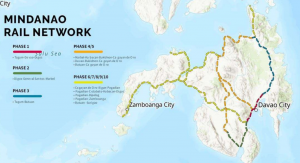The tourism and travel industry has been pushed to the ground that it would be hard to revive them even after the coronavirus 2019 (Covid-19) pandemic, a business organization official said.
In a private message to TIMES over the weekend, John Carlo B. Tria, president of the Davao City Chamber of Commerce and Industry, said that the sheer number of establishments that are part of the industry as well as their workers has made it among those that have sustained so much losses due to the impact of the virus.
As an example, Tria said that when Marco Polo Hotel Davao, the first five-star hotel in the city, announced last week that it would stop operations indefinitely on June 15, about 270 employees were immediately facing joblessness.
The case of Marco Polo Hotel Davao, which is operated by Halifax Hotel Davao Inc., is not even unique as there are other hotels in the city that have also closed down, although officials have not made a statement on this.
The industry has also been floored by the virus because the latter disrupted its very basic model: bringing people in throve from one place to another.
Of all the industries, Tria added, it is the tourism industry whose recovery from the impact of the virus to “be longer and it will take time for travel businesses to return even after ECQ (enhanced community quarantine) is lifted.”
For some hotels to survive, they have been able to negotiate with business process outsourcing (BPO) and have opened their restaurants for takeouts.
Among those hotels are Waterfront Insular Hotel Davao and Acacia Hotel Davao, all located in the northern side of the city.
Based on the information from Acacia Hotel Davao management, it has managed to negotiate with a BPO company so their workers would get accommodated at the hotel.
Aside from the accommodation, the hotel is also running its Luk Foo Palace, a restaurant that caters to those looking for Cantonese dishes.
Waterfront Insular Hotel Davao, considered among the few landmarks of the city, has also been trying to continue its business even if it is “bleeding,” said Jennifer R. Romero, head of its sales and marketing department.
“We will try to lower down the cost and will see if we can hit the break even figures,” Romero told TIMES in a private message.
However, the BPO market is not sustainable because when the government slowly lowers down the quarantine protocols, BPO companies will also look at how to lower their cost, Francis R. Ledesma, president of Halifax Hotel Davao Inc., said.
This was the reason that even when Marco Polo Hotel was also able to secure some BPO clients, it still decided to close down its operations indefinitely.
The lingering impact of the virus even after its existence, will be a huge challenge for the industry that it needs huge interventions for it to recover.
Tria said his group is looking at ways to help these businesses as well as those related to tourism and travel. At present, he said, it is “developing plans with the tourism industry that combine advocacy, capability building and business promotion so that they can recover and be resilient.”


